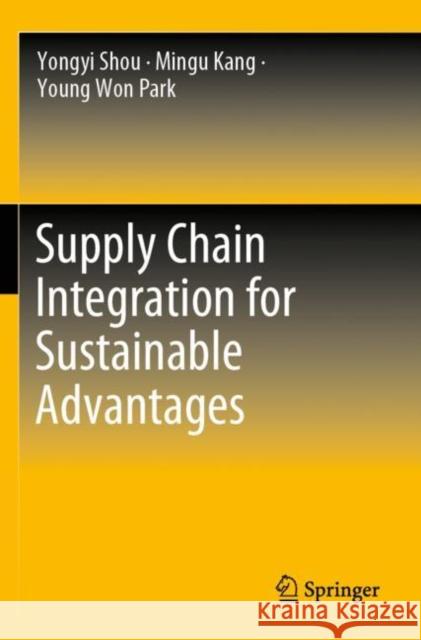Supply Chain Integration for Sustainable Advantages » książka
Supply Chain Integration for Sustainable Advantages
ISBN-13: 9789811693342 / Angielski / Miękka / 2023 / 159 str.
Supply Chain Integration for Sustainable Advantages
ISBN-13: 9789811693342 / Angielski / Miękka / 2023 / 159 str.
(netto: 460,04 VAT: 5%)
Najniższa cena z 30 dni: 424,07
ok. 16-18 dni roboczych.
Darmowa dostawa!
This book offers a systematic literature review and a set of empirical studies on supply chain integration. Supply chain management is recognized as an essential means for firms to achieve competitive advantages, in which supply chain integration is regarded as the core for operational excellence: shorter lead time, lower inventory, faster delivery, and higher product and service quality. Using data from an international survey of manufacturing firms, an interrelated set of studies that investigate supply chain integration from different perspectives at multiple levels are conducted. Intra-organizational factors such as products, production systems, and socio-technical systems are examined to understand their effects on supply chain integration, indicating that firms need to implement different types of supply chain integration for specific competitive priorities. Then, the outcomes of supply chain integration, including its impact on risk management and sustainability management, are investigated from an inter-organizational perspective. The firm is embedded in a manufacturing network, a global supply chain, or both, and it can use supply chain integration as a strategic action for risks. Sustainability has been a vital issue for manufacturers, and supply chain integration can enhance its success. This book makes significant contributions to the relevant literature on supply chain integration and offers insights to supply chain managers in manufacturing industries.
This book offers a systematic literature review and a set of empirical studies on supply chain integration. Supply chain management is recognized as an essential means for firms to achieve competitive advantages, in which supply chain integration is regarded as the core for operational excellence: shorter lead time, lower inventory, faster delivery, and higher product and service quality. Using data from an international survey of manufacturing firms, an interrelated set of studies that investigate supply chain integration from different perspectives at multiple levels are conducted. Intra-organizational factors such as products, production systems, and socio-technical systems are examined to understand their effects on supply chain integration, indicating that firms need to implement different types of supply chain integration for specific competitive priorities. Then, the outcomes of supply chain integration, including its impact on risk management and sustainability management, are investigated from an inter-organizational perspective. The firm is embedded in a manufacturing network, a global supply chain, or both, and it can use supply chain integration as a strategic action for risks. Sustainability has been a vital issue for manufacturers, and supply chain integration can enhance its success. This book makes significant contributions to the relevant literature on supply chain integration and offers insights to supply chain managers in manufacturing industries.











